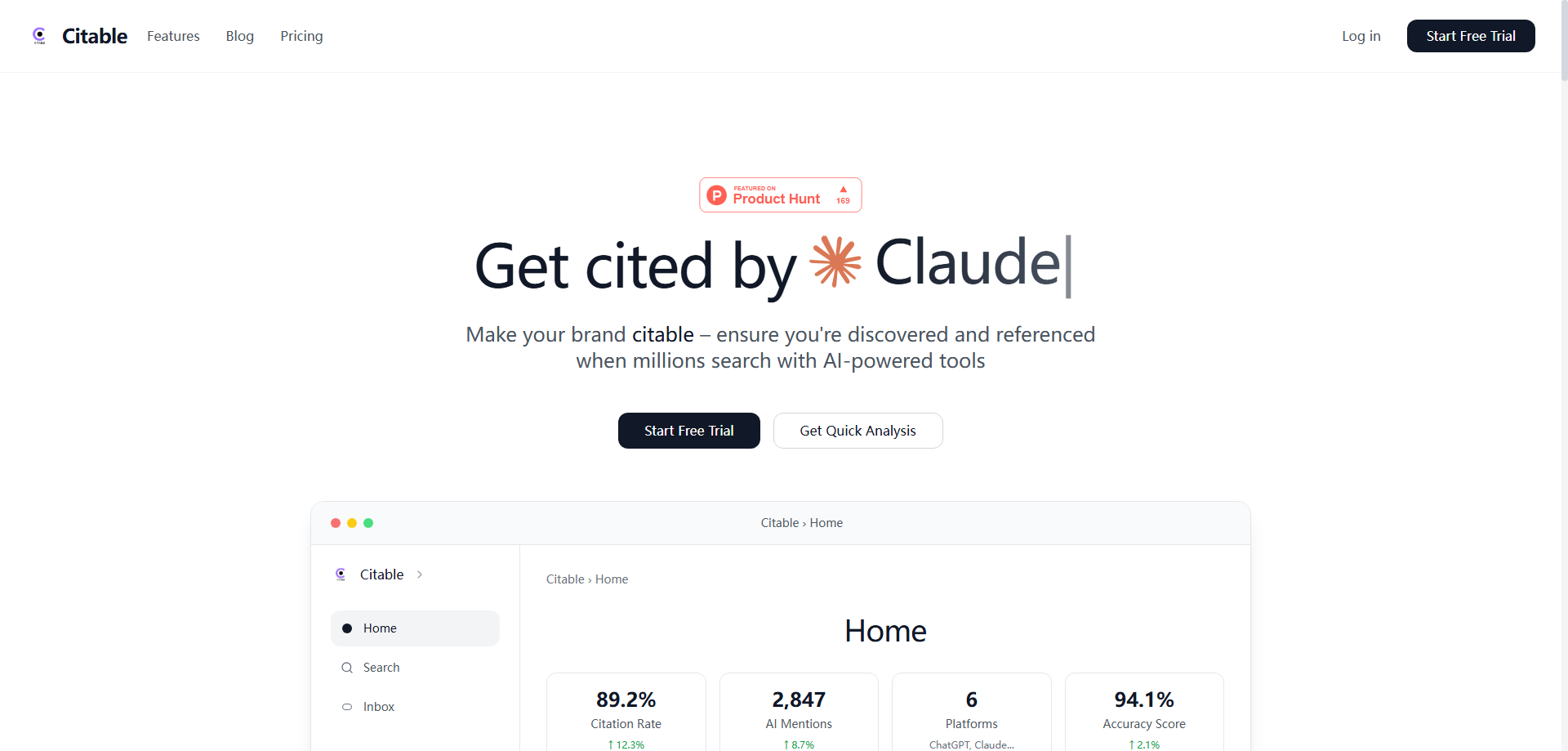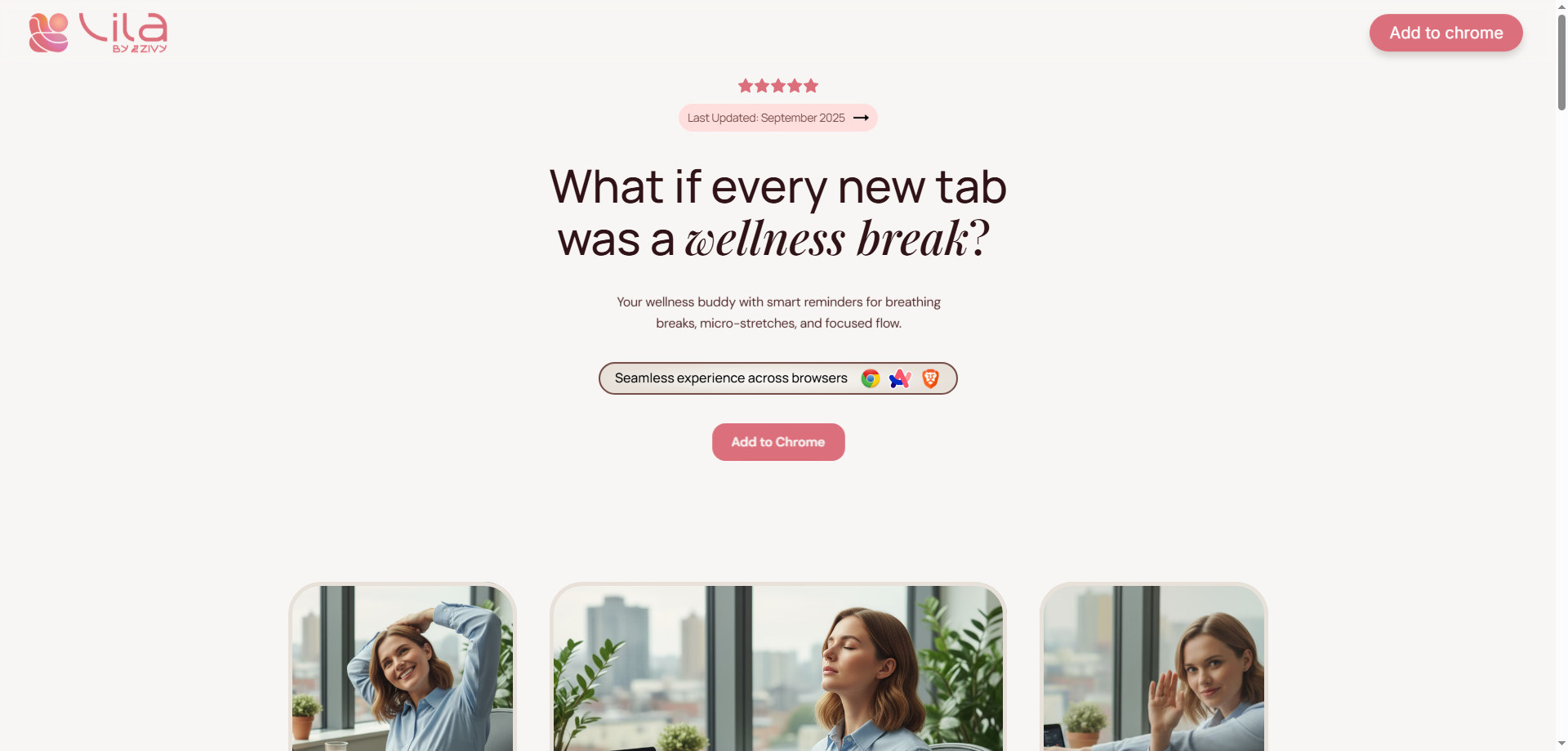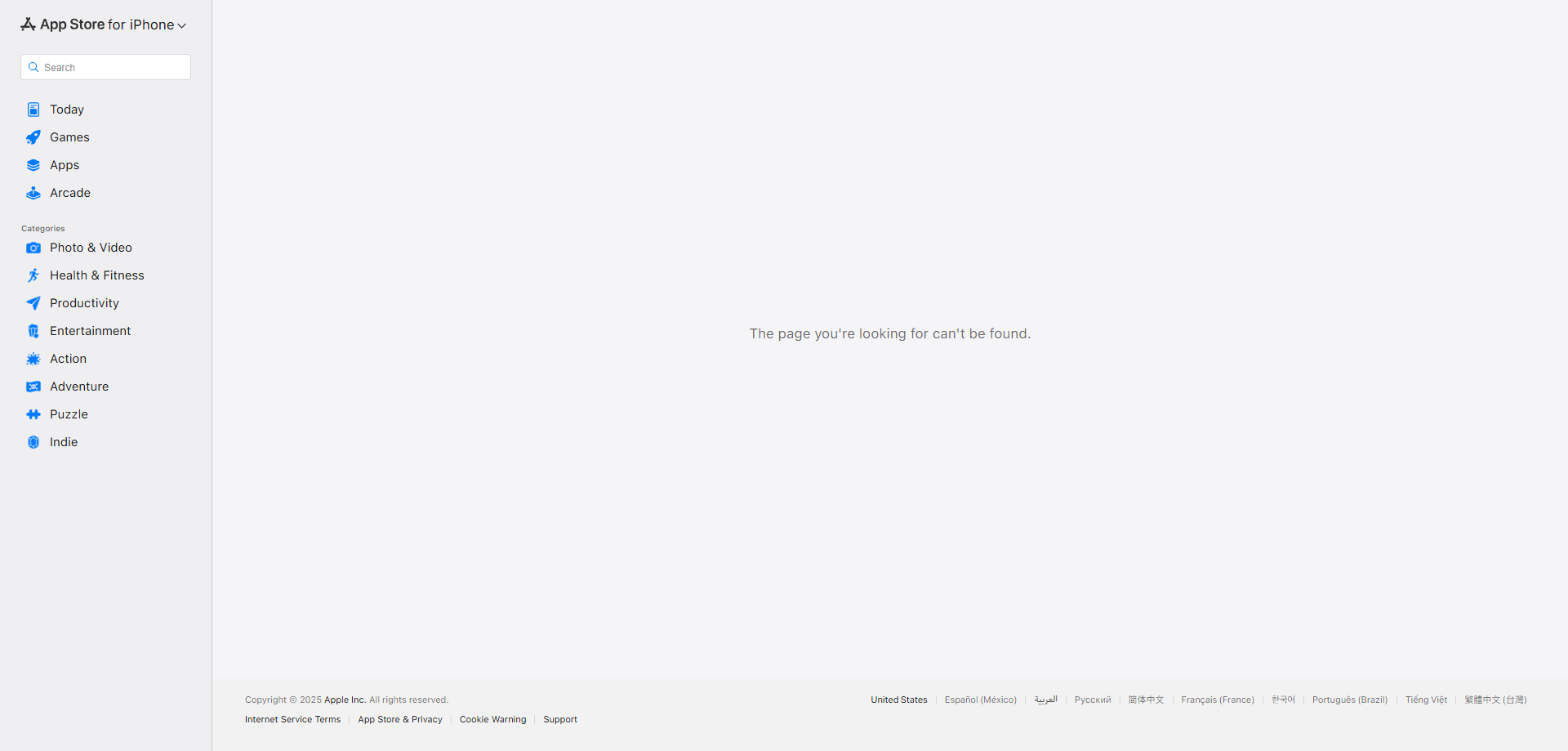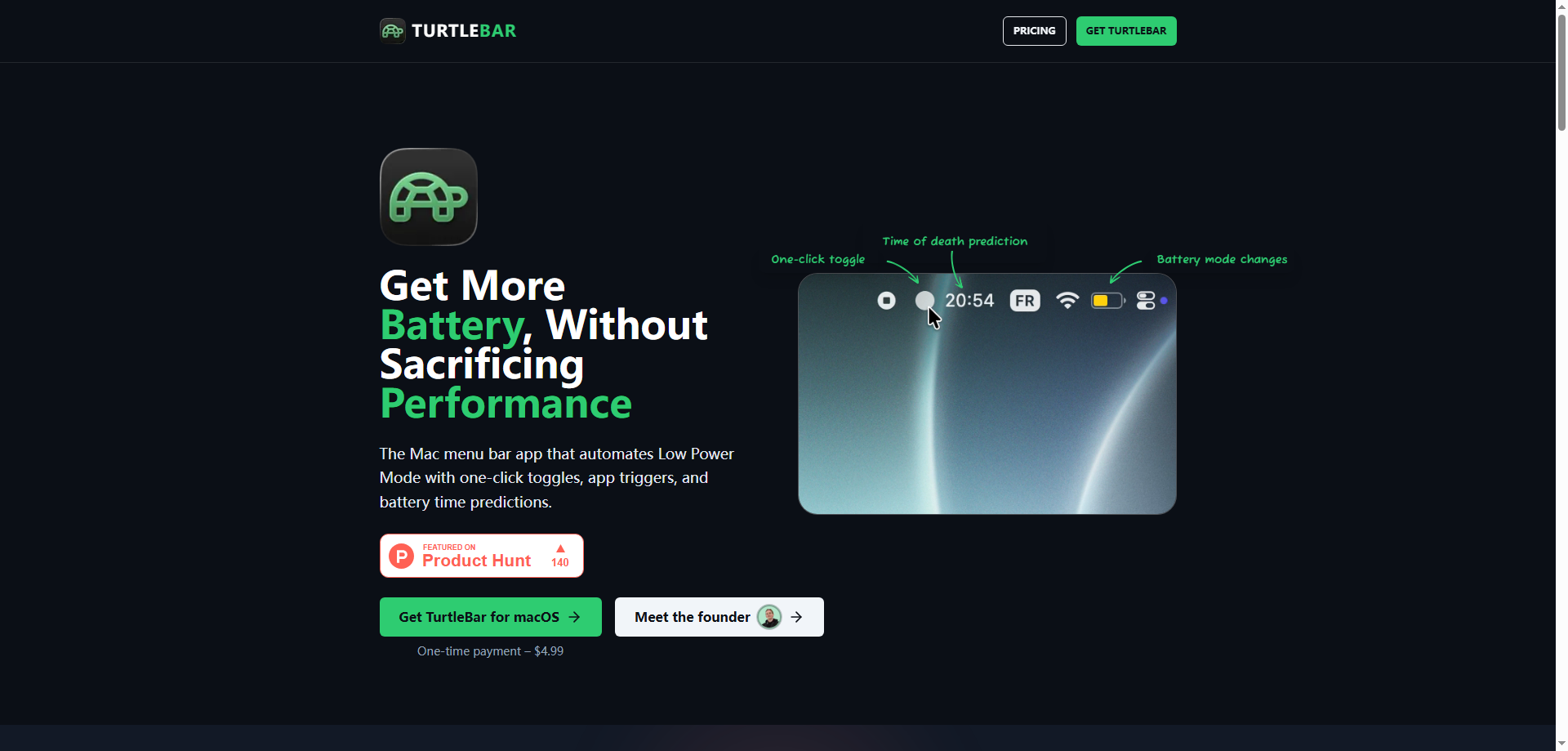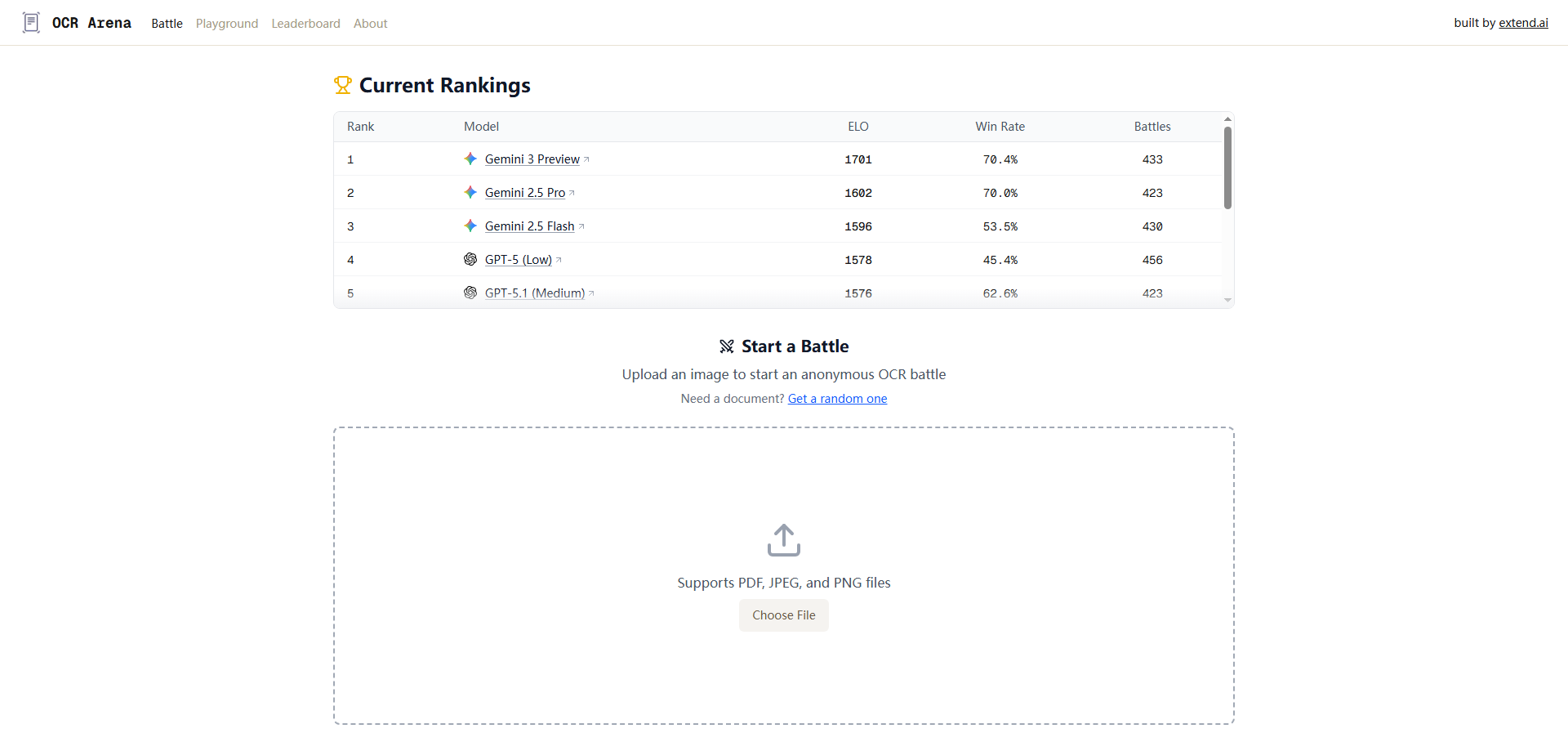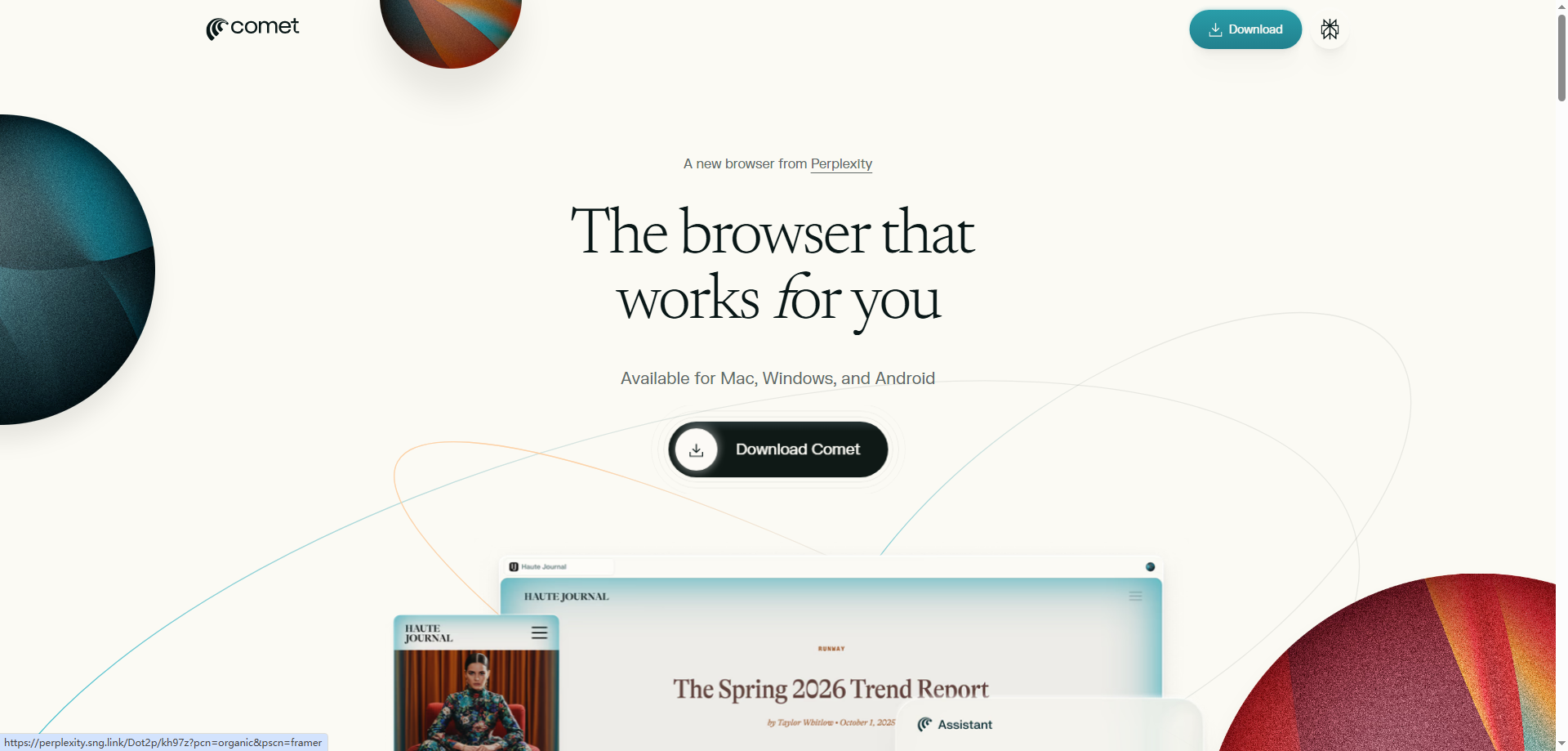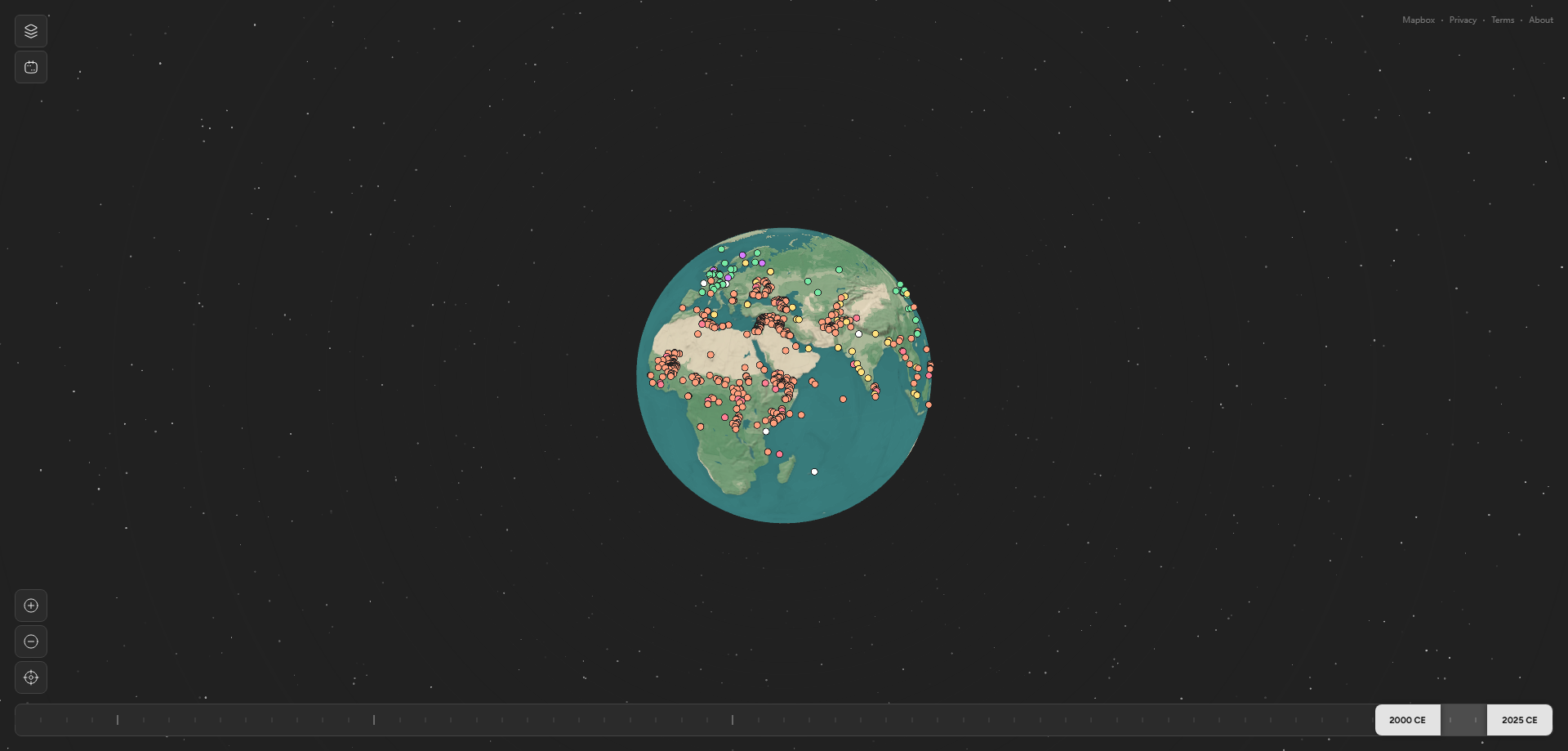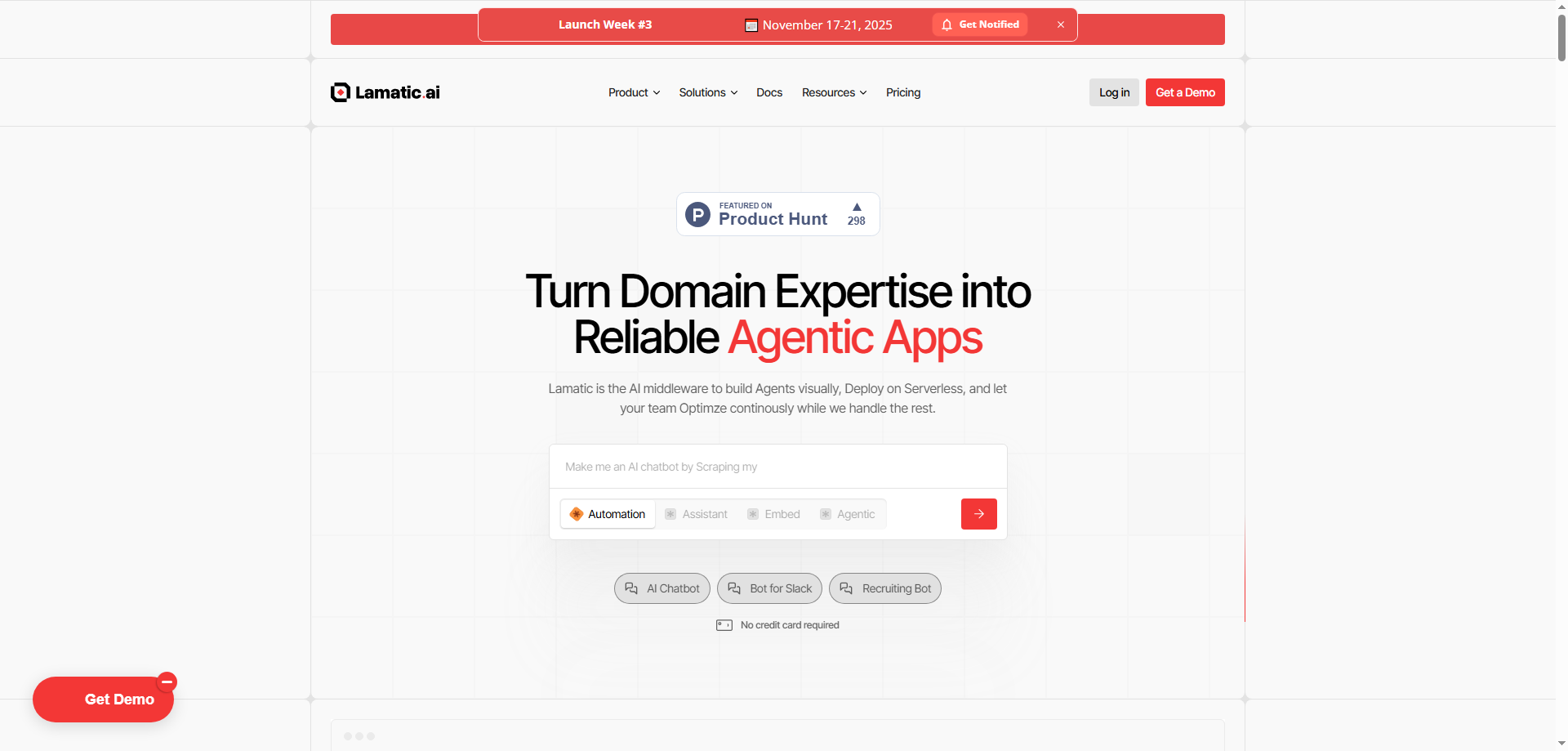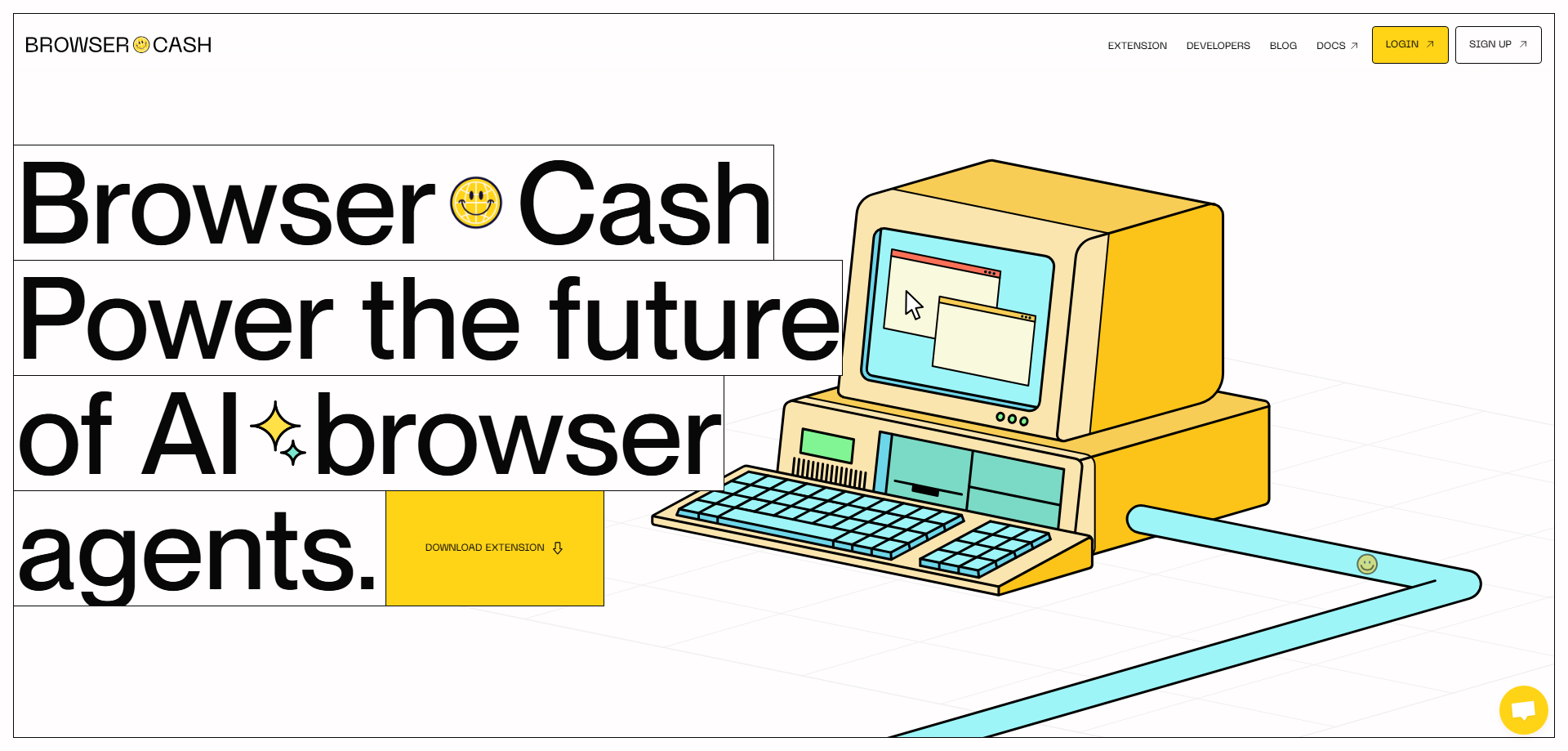When I first heard about Citable, I'll admit I was skeptical. Another marketing tool promising to revolutionize brand visibility? But here's the thing—this one actually tackles a problem most brands haven't even realized they have yet. We're living in an era where people ask ChatGPT, Perplexity, and Claude for recommendations instead of Googling. And if your brand isn't showing up in those AI-generated answers, you're essentially invisible to an entire generation of consumers.
Let me walk you through why Citable might just be the most forward-thinking brand marketing tool I've encountered this year.
The Creative Genius Behind Citable
Here's what makes Citable genuinely innovative: it doesn't just track brand mentions or monitor sentiment. It actually simulates thousands of real user interactions with AI platforms daily. Think about that for a second. The team behind Citable created a system that pre-activates AI accounts on ChatGPT, Perplexity, Gemini, Claude, and Grok, gives them memory contexts that mimic real users, and then runs massive prompt campaigns to see which brands get cited in the responses.
This is creative problem-solving at its finest. Traditional SEO tools measure Google rankings. Social listening tools track Twitter mentions. But what measures your share of voice in the AI economy? That's the gap Citable fills, and they've done it in a way that's both technically sophisticated and practically useful.
The platform doesn't just tell you "your brand was mentioned 47 times this week." It breaks down exactly which content pieces got cited, which user personas triggered those citations, which AI models preferred your content, and—this is the kicker—why you're losing to competitors in specific content categories. It's like having an AI whisperer on your marketing team who can decode exactly what these language models are thinking.
What really impresses me is the actionable intelligence layer. Citable doesn't leave you drowning in data. It tells you specifically what to do: "Publish an article about X topic," "Engage in these Reddit discussions," "Your content is weak in the sustainability angle—here's how to fix it." This transforms abstract AI visibility metrics into concrete content strategy.
Is Citable Disrupting Traditional Marketing Tools?
Now let's talk about disruption. Can Citable replace existing marketing tools, or is it just another add-on to an already bloated martech stack?
Here's my take: Citable isn't replacing traditional SEO tools or brand monitoring platforms—it's exposing their growing irrelevance. Google search traffic is declining among younger demographics. I've watched my own Gen Z colleagues skip Google entirely and go straight to ChatGPT for product recommendations, travel planning, and even shopping research. If your entire brand strategy revolves around ranking on page one of Google, you're optimizing for yesterday's internet.
Traditional SEO focuses on keywords, backlinks, and domain authority—metrics that mean nothing when an AI is synthesizing answers from its training data and real-time search. Social media monitoring tracks mentions and hashtags, but misses the massive, invisible conversation happening inside AI chat interfaces. Brand tracking tools measure awareness and sentiment, but can't tell you whether Claude or ChatGPT actually recommends your product when users ask for suggestions.
Citable operates in a completely different paradigm. It measures what I'd call "AI recommendation authority"—your brand's ability to be surfaced, cited, and recommended by AI systems. This is the new battleground for brand visibility, and most marketing departments haven't even shown up to fight yet.
Could Citable completely replace traditional tools? Not quite. You still need basic SEO for your website structure, social listening for crisis management, and analytics for conversion tracking. But Citable addresses the single biggest blind spot in modern marketing: understanding and optimizing for AI-mediated discovery. In that sense, it's not just disruptive—it's category-creating.
The real disruption comes from how Citable forces brands to rethink content strategy. Instead of chasing Google's algorithm updates, you're optimizing for how AI models synthesize and cite information. This requires fundamentally different content: more authoritative, more context-rich, more directly answering user questions. Citable essentially tells you how to write content that AI systems trust and cite, which is a completely new discipline.
Will Users Actually Adopt This?
Let's get real about market demand. Who needs Citable, and will they actually pay for it?
The immediate use case is crystal clear for three groups: emerging brands trying to break through the noise, content publishers watching their traffic evaporate, and e-commerce platforms competing in crowded categories. These aren't hypothetical users—they're experiencing real pain right now.
I've watched several early-stage tech brands struggle with this exact problem. They've got great products, solid PR, decent social presence, but when potential customers ask Claude or ChatGPT for recommendations in their category, crickets. They're invisible in the AI layer, and they don't even know it because there's been no way to measure it. Citable gives them visibility into that blind spot and a roadmap to fix it.
For content publishers, the pain is even more acute. Traditional media sites built their business models on Google traffic and social referrals. Both are declining. Meanwhile, AI systems are becoming primary information sources, often synthesizing and paraphrasing publisher content without driving traffic back. Citable helps publishers understand which of their content gets cited by AI systems and how to optimize for AI-driven discovery—potentially opening new traffic sources.
The adoption curve will likely follow awareness. Right now, most brands haven't internalized that AI search is a thing they should care about. But that's changing fast. I've noticed more marketing conferences adding "AI search optimization" sessions. More CMOs asking about "LLM visibility strategies." The market is being educated in real-time by the rapid adoption of ChatGPT, Perplexity, and AI-integrated search.
The pricing model matters here too. If Citable positions itself as an enterprise solution with hefty price tags, adoption will be slow. But if they can offer accessible tiers for mid-market brands and startups—the segments feeling the most pressure—they could see rapid uptake.
One concern: the learning curve. Understanding AI citation patterns and implementing Citable's recommendations requires some sophistication. Brands with mature content teams will thrive. Smaller companies might struggle to execute the strategy even if the insights are valuable. Citable will need strong educational resources and potentially done-for-you services to maximize adoption.
Survival Assessment: Will Citable Make It?
Alright, here's the tough question: will Citable actually be around in twelve months? Let me break this down systematically.
My Rating: ⭐⭐⭐⭐ (4 out of 5 stars)
Why Four Stars?
Massive Opportunity Window: AI search adoption is exploding. Perplexity is growing exponentially. Google is integrating AI overviews. ChatGPT has over 200 million weekly users. Every major tech company is betting big on AI-first information access. Citable is positioned at exactly the right place at exactly the right time. This is a rising tide that will lift all boats in the AI optimization space.
Real, Measurable Value: Unlike many martech tools that provide vanity metrics, Citable solves a concrete problem with measurable impact. Brands can directly correlate Citable insights with improved AI citations, which should correlate with brand awareness and ultimately conversions. That ROI story is compelling.
Technical Moat: Building a system that accurately simulates user behavior across multiple AI platforms, maintains memory contexts, runs thousands of daily prompts, and extracts meaningful patterns is non-trivial. Citable has built something that can't be replicated with a weekend coding project. That's valuable defensibility.
First-Mover Advantage: They're creating a new category. Being the first tool that specifically addresses AI share of voice gives them significant positioning power. They can define the metrics, set the standards, and own the conversation.
But Here's Why Not Five Stars—The Risks:
Platform Dependency: Citable's entire value proposition depends on consistent access to ChatGPT, Perplexity, Claude, Gemini, and Grok. If these platforms change their APIs, implement rate limiting, or detect and block simulation accounts, Citable's core functionality breaks. This is existential risk number one.
AI Platform Evolution: AI models are improving rapidly. The factors that determine citations today might be completely different in six months. Can Citable's analysis keep pace with evolving AI architectures? If GPT-5 fundamentally changes how sources get cited, does their historical data become worthless?
Market Education Burden: Citable needs to educate the market about a problem many brands don't yet understand. That's expensive and slow. They're not just competing for budget—they're competing for mindshare and convincing CMOs that AI visibility matters. That's a heavy lift.
Competitive Threats: The big SEO platforms—Semrush, Ahrefs, Moz—will eventually add AI search tracking features. They have established customer bases, sales teams, and brand recognition. Can Citable maintain its advantage once the giants wake up to this market?
Measurement Challenges: Proving causation between Citable recommendations and business outcomes is tricky. If a brand follows Citable's advice and sees increased AI citations, great. But does that translate to revenue? That attribution loop needs to be rock-solid or clients will churn.
Pricing Pressure: As more players enter the space, pricing will compress. Citable needs to either build switching costs through data network effects or continuously innovate to stay ahead on features.
What Would Push Them to Five Stars:
If Citable can secure strategic partnerships with AI platforms themselves—imagine official "Claude Brand Visibility" or "ChatGPT Citation Analytics" partnerships—that would dramatically reduce platform risk and accelerate market education. If they can demonstrate clear ROI cases where improved AI visibility drove measurable revenue, that proof point would accelerate sales cycles. And if they can build a content recommendation engine that automatically generates AI-optimized content, not just insights, they'd become indispensable.
The Bottom Line
I genuinely believe Citable is onto something important. The shift from traditional search to AI-mediated discovery is one of the biggest changes in how information flows on the internet since Google itself. Brands that ignore this shift will find themselves increasingly invisible to a growing segment of consumers who never leave their AI chat interfaces.
Citable has built a sophisticated, genuinely useful tool that addresses a real and growing need. The creative approach of simulating real user behavior across AI platforms is elegant. The disruption potential is significant, particularly as AI search adoption accelerates. User adoption will grow as market awareness catches up to reality.
But they're not without risk. Platform dependencies, market education costs, and inevitable competition from larger players are all legitimate concerns. They need to move fast, prove ROI, and build defensible advantages before the market gets crowded.
If I were advising the Citable team, I'd say: focus obsessively on proving revenue impact, build those platform partnerships, and create lock-in through data network effects where your insights get better as more brands use the platform. The opportunity is enormous, but the window won't stay open forever.
For brands wondering whether to try Citable: if you're in a competitive category where recommendations matter, if you're seeing traditional traffic sources decline, or if you're trying to build awareness in the AI-first generation—this is worth exploring. The future of brand discovery is being written right now, and tools like Citable are how you ensure your brand is part of that story.
Four stars. Strong potential. Watch this space.
